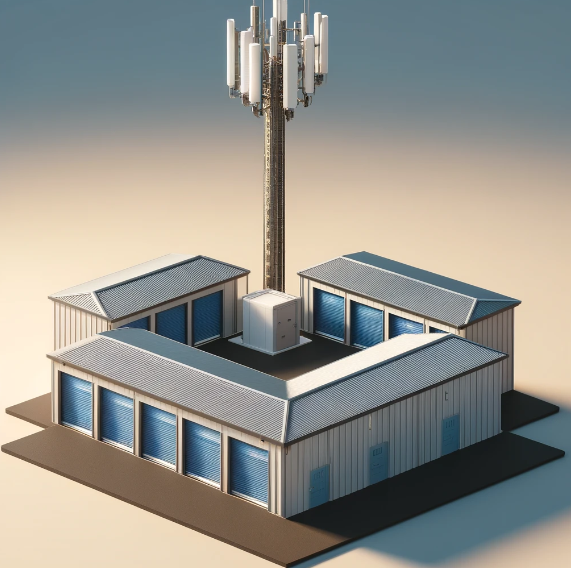
Cell Tower Companies
On September 6, 2013, American Tower Corporation announced the acquisition of MIP Tower Holdings, the parent of Global Tower Partners. At the end of 2nd Quarter 2013, ATC owned nearly 28,000 towers in the US, and managed approximately 9-10K rooftops. It also owned over 34,000 international cell sites. The acquisition of Global Tower Partners added approximately 5,400 towers in the US, along with 9,000 rooftop sites, and gave ATC an increased presence in several top urban markets, including New York, San Francisco, and Washington, D.C. Significantly, GTP’s towers have room to grow in terms of additional tenants, averaging two tenants each, compared with ATC’s 2.5 tenants, and have the capacity for four tenants. Because the towers have not reached capacity, they are ripe for carrier collocation.
Contact Us
In addition to individual landowners, building owners, and local governments, American Tower Corporation generates revenue by collocating space on their towers to wireless carriers. In the US, this revenue comes mainly from the former “Big Four,” AT&T (17%), Sprint (14%), T-Mobile (9%), and Verizon (11%) (note that Sprint and T-Mobile have merged as of 2019). 34% percent of its revenue comes from international carriers and 15% from other domestic carriers.
American Tower Corp. acquired most of their tower portfolio through larger historical acquisitions of Airtouch, Alltel, Cingular, and Nextel. It also builds new towers, leasing land from landowners. In 2013, ATC indicated that it expects to build up to 2,750 new towers globally. To do so, they must contact landowners to enter into what the industry refers to as a ground lease. If you have been contacted by American Tower Corporation to lease your land, please see our separate page on How to Evaluate American Tower Proposed Cell Tower Leases.
During 2014 Q1, ATC added 650 new assets to its portfolio, including 60 new U.S. towers. As of 2014 Q1, the average years remaining on its ground leases was 24 years (an increase of approximately one year from 2013 Q1).
In 2014 Q4, ATC added and/or extended 500 leases, with an average of 34 years remaining to term. Currently over 64% of its leases are associated with properties that have at least 20 years remaining until expiration. Of the towers ATC owns in the U.S., approximately 90% of them are on property where the tower in subject is the only lease the landowner has with ATC. That means that ATC is party to leases with over 20,000 individual property owners.
ATC states a goal of increasing this metric up to 80% within the next three years, which means that landowners with ATC leases that are set to expire in less than 20 years, will be hearing from American Tower imminently to discuss lease extension agreements. This is because the revenue that American Tower generates is tied to its ability to keep the tower on the property. Since the typical lease provides that the lease can be terminated only by ATC, this amounts to a one-way commitment on behalf of the landowner.
There are two primary motivators for American Tower to extend or purchase existing ground leases:
- 1. To get to landowners prior to the landowner retaining an expert who can help them understand the true value proposition in the lease; and
- 2. To prevent the landowner from selling the lease to a third-party lease buyout company
Because of substantial, competing interests in ground leases by third-party buyout companies (especially those under tower company towers), ATC has been proactive (and some might say aggressive) in its efforts to acquire or extend its existing ground leases. This often leads the landowner to perceive that they must do something with their lease immediately, even when that’s not the case.
Over the last 10 years, Steel in the Air has assisted 400-500 landowners who have been contacted by American Tower Corporation regarding lease proposals, extensions and buyouts. We have seen thousands of proposals from ATC. As part of our day-to-day operations, we track these proposals so that our clients have the benefit of knowing what American Tower offers initially and what they will ultimately agree to. We can bring this experience to bear on your situation and provide actual knowledge of how ATC negotiates and either negotiate or assist you in negotiating your lease with American Tower Corporation.
There are five proposals that landowners receive from American Tower:
- 1. American Tower Lease Buyout: AMT offers to purchase the ground rights under their existing tower through a perpetual or fixed term easement.
- 2. American Tower Ground Lease Extension: AMT proposes to extend their ground lease for 30-50 years. They typically offer a nominal signing bonus and will sometimes offer to increase the rent going forward.
- 3. American Tower Proposed Cell Tower Lease: AMT contacts a landowner to enter into a lease to erect a tower on the property.
- 4. American Tower Rooftop Lease Purchase Offer: AMT has recently formed a Rooftop Lease Buyout division to contact building owners who have rooftops where they lease space to wireless carriers directly. They then propose to acquire the rooftop leases plus the rights to the remaining space on the rooftop so that they can lease to other wireless carriers.
- 5. American Tower Lease Expansion or Consent Requests: AMT will contact their existing landowners to request the right to expand their lease footprint or to receive consent to sublease space on the tower to a wireless provider.
Please contact us to discuss any questions you might have about a proposal you have received from American Tower Corporation. The initial discussion is free and once we talk to you and understand your needs, we can advise you as to what the costs would be should you choose to retain our services. Unlike our competitors, we offer the flexibility of either a fixed-fee consulting service or a contingency-based service.

Insider tips
- Cell towers are originally built with a certain capacity in mind. Some are built to house singular carriers, while others are built to support multiple carriers. As such, their value varies a great deal.
- Wireless carriers and tower companies often send notices to their Lessors (e.g. landowners, building owners and structure owners) stating that the Lessor must consent to certain equipment modifications. This is not necessarily true. In many cases, you can negotiate better terms (or receive some form of compensation) in exchange for your “consent.”
- Finding the sweet spot in lease negotiations requires knowledge of industry dynamics and company-specific deployment plans. Relocating cell sites is expensive, however if their gears are already moving, companies might eat the costs – especially when they’re dealing with property owners who are difficult or too demanding.










